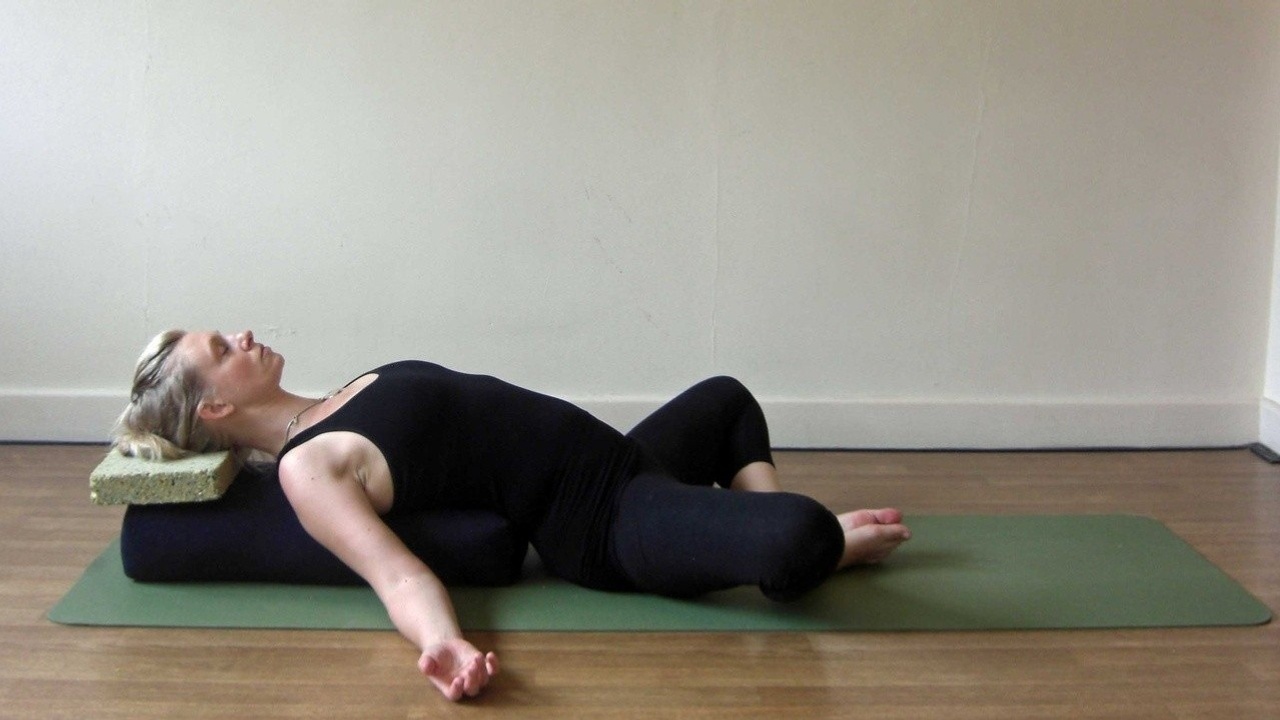How to Maintain Energy Levels
It is a basic truth that the modern world is highly stimulatory. For many of us, the amount we have to do, to watch, to read, to scroll about can be overwhelming, but even if we don’t find the barrage of information seemingly too much, we can become desensitised to how much this steals our energy.
With any action or reaction, we need time and space to rest and recover. This is mirrored in our breath, with the basic pattern of the energising inhalation followed by the releasing exhalation. Accessing states and movement where we are fully able to breathe out and have recovery and energy support within the practice, can also help us feel where can restore, rather than deplete energy resources.
Energy states governed by the nervous system
We have similar active and resting states within the nervous system. This is our complex system of nerves (from brain to outer body) that coordinates all body activity and sensory information by transmitting signals to a...
Stretching can be something we look forward to or dread within our exercise regimens, so understanding its purpose and effects can create more depth and motivation, however we feel. Messages can be conflicting, so some simple basics can help us navigate confusion towards following your body’s needs.
Stretching for sports is not the same as in yoga; rather than looking to improve flexibility alone, static (still) stretching after exercise is designed to lengthen muscle shortened through use back to its normal range of motion (ROM). This is why dynamic (moving), rather than static is recommended for warm-ups. More flexibility ie more range through muscle and around joints may actually impede the action and strength of specific movements needed for sport.
We can’t actually lengthen muscle – this is already determined by its insertion and origin ie where it is attached and leads to in terms of bones and tendons – but we can lessen resistance to a stretch, where the nervous system doesn’t...
January is a time of new beginnings and even recalibration – taking stock of the aspects of our lives where we go awry and find ourselves going round and round in circles.
So much of where we can get stuck is based on old survival strategies learnt in early childhood and listening to these inner voices of what we need to feel safe and secure is a key part of moving through life in a stress-free way.
The more we can let ourselves off the hook of expectation and recognise our true needs, the less self-judgment we need to throw up and the kinder we can be to ourselves.
This is the stuff that can help us be free our reactions and behaviours that we might be fed up with with; turning to sugar or alcohol when we’re stressed, arguing with our partner or feeling a mental and physical exhaustion that stops us from exercising in the way we’d like.
For instance, my ‘resolutions’ last year were:
1. Notice when I’m close to or have become overwhelmed and respond…
2. Work less and only do what I...
It's easy to lose our sense of satisfaction and need-over-want at this festive time, but finding ways to stay connected can make the whole shebang leave a better taste in our mouths in the aftermath...
So the big question is, can we retain a sense of 'enough already' in the face of excess? The lead up to the main event is a good time to step back, take stock and see how Christmas is permeating our lives and our expectations.
Are you dizzy as a child at the thought of Santa’s touchdown or feeling the heavy burden of endless present-buying or relatives descending? Personally, I tend to feel quite different each year… BC (Before Child) I used to be able to get full-on festive one year and then positively ignore its existence the next, just enjoying some holiday time without the razzamatazz.
Now I’m swept up in the childhood vision of it all, it’s a time to experience with my daughter what I wish it to be; not about buying and getting yet more stuff, but about giving, sharing, joy, ligh...
Happy, regulated mood is where life can feel most calm, easy and enjoyable. Yet many often feel in the grip of a rollercoaster rise of emotions, inner criticism, worry and self-doubt. These can include periods of low mood that can make existing daily feel extremely difficult and even downright exhausting.
Whether this falls into a label of ‘depression’ or not, from a holistic point of view, there are some key potential underlying causes that may offer potential change in how we view ourselves and the world. Attending to the self-care we need to be able to cope and find a more positive outlook can in turn allow us to participate in activities that we know elevate our mood. Humans have a naturally raise in mood and motivation via the reward neurotransmitter dopamine when we do anything that propagates survival of the species; eat, drink and exercise, but as pack animals, also through group bonding and cooperation, so group activities, sports, talking, eating together and touch all help ...
Winter in the 21st century can seem all about preparations for Christmas - shopping, decorations and TV, but inside, it’s all systems on heat and protection as we move into the coldest months of the year.
How can we ensure we keep strong through these months, instead of crippling our resources when we need them most?
It is always good to remember that Christmas for our fore-mothers and fore-fathers was always a time to see in the winter and prepare for the colder months to come. A huge difference between then and now is the availability of the food itself.
When we relied on what the land gave us – or later what we grew and raised – every calorie was precious, especially those from fat, the best compact source of energy to see you through the winter.
Now calories are all too abundant and living in centrally heated homes, we have removed the need to produce as much body heat from fat.
The motivation of a feast at the height of winter no longer fits with the way we live. Frenzied con...
Our energy and vitality are bound up in optimal function of a small, but important gland in our throat. Whether you have been diagnosed with a specific thyroid condition or simply feel sluggish and have difficulty losing weight, supporting the health of your thyroid may help improve how you feel.
Our energy levels are profoundly linked to our mental health and those with thyroid issues often reported that it feels like “life is passing them by.” From an Eastern perspective, the thyroid is associated with the throat chakra (energy wheel). Yogis believe this area represents expression and an energetic blockage here may have its roots in fear, inability of self-expression and frustration. Exercise is shown to support thyroid function, but ironically when it is under-functioning, motivation to move can be lost.
The thyroid gland is a butterfly shaped organ in the neck that produces thyroid hormones that travel to cells throughout the body. One of its major jobs is to regulate metabolism;...
We humans have an interesting relationship with energy. We can expect so much of our resources, often underplaying the recovery time we really need and viewing ‘good energy’ simply as the ability to keep going, no matter what... which is akin to expecting your smartphone to keep working without recharging the battery.
In reality, energy that we can rely on and that remains generally stable throughout the day only occurs when we factor downtime and breaks into our daily lives - when we truly connect in to when we are doing too much and need to back off. This can apply to any aspect of our lives; work, play, exercise and anything else.
Energy is finite and shared around the body; when it is needed for digestion or immunity for instance, our want to move around becomes reduced - energy available to our muscle is needed elsewhere and we go into recovery mode.
The truth is energy needs to ebb and flow. We need to allow natural down-times to be able to pick up again and not fall prey to s...












